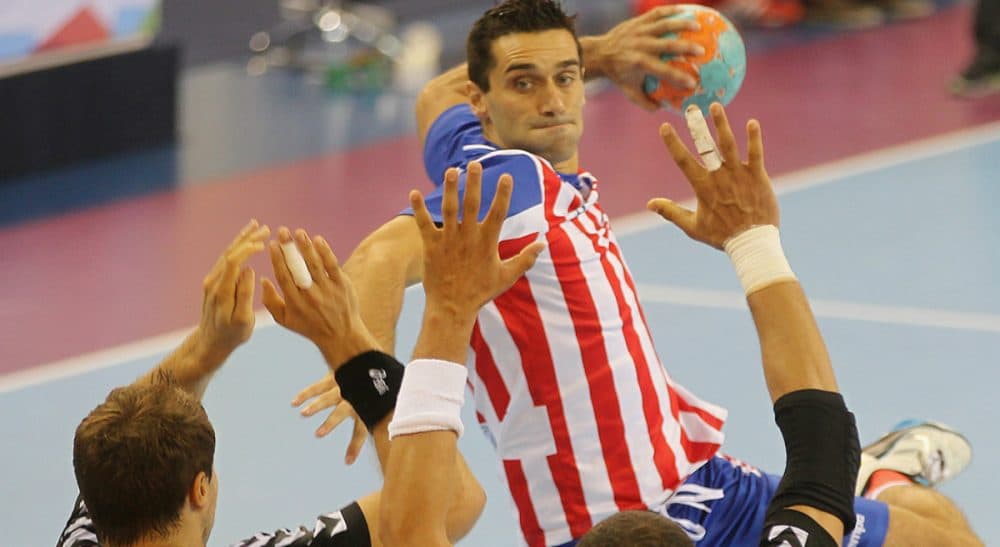Advertisement
The Problem With Using Sports Metaphors In Business

If you listen to CEOs and business journalists for any period of time, it’s not long before you encounter sports metaphors: stock prices are scores, quarters are innings, clear-cut success is a slam dunk. Business Insider recently ran a series on “our most dominant athletes” as though this had some relevance to the world of commerce. Such analogies are pervasive and pernicious, conveying a mental model of business that is, at best, wrongheaded and, at worst, destructive.
Take those stock prices. These have become the simple measure by which winning or losing is defined. So single-minded has the obsession become that most people now believe companies have a rigid and legal obligation to prioritize stock price above all else. But this isn’t true. As the legal scholar Lynn Stout has demonstrated neither a company’s charter, nor national or case law requires maximizing share price at any cost. Informed directors can ignore today’s share price in favor of the company’s long term interests. But if business is a sport, then the score is everything. The analogy breaks down because in sport the game ends when time is up. But healthy companies live longer than people.
In sport, time is always of the essence and speed matters. No one values the runner who stops to think or the player who takes time out for reflection.
Stock prices measure crudely a company’s value at one arbitrary moment in time. Focus on them prompts short term thinking but also something more damaging still: tunnel vision. Microsoft met or beat its market forecast for 41 out of the first 42 quarters, missing just once by a cent. This is statistically implausible and suggests what Roger Martin calls “fixing the game.” It’s hard not to imagine that the laser-like focus that delivers such results is not investing a great deal of time scanning the horizons for the new developments and inventions (the Internet, games, databases, search, mobile) in which Microsoft has so notably lagged.
When I ran companies for CMGI during the time in which its stock price was soaring, there were days when no work got done at all. You could feel the adrenalin in the air, hear the excitement in the voices of employees whose minds should have been elsewhere. Just as you can’t infer the long term health of a football player by the points he scores, you can’t tell the long term health of a company by its share price. CMGI crashed as fast as it had flown.
If business were a sport, you’d succeed by focusing on, and crushing, your opponent. That’s how Real Networks CEO, Rob Glaser viewed Microsoft, his former employers which had failed to appreciate his creativity. But his obsessive rivalry blinded him to the bigger picture. When iTunes launched in 2003, Glaser crowed “Apple has their core market of 3 percent to 5 percent of computer users; I guess we’ll settle for the other 95 percent” little seeing how far the world had changed while he was focusing on the opposing team.
In sport, time is always of the essence and speed matters. No one values the runner who stops to think or the player who takes time out for reflection. Many business leaders get to the top spot because they’ve worked fast and furiously for years — only to be baffled and confused that what’s needed now is just the opposite. On the field, action is everything but business leadership demands critical thinking, debate and exploration, habits few CEOs have been encouraged to develop.
Advertisement
Perhaps worst of all, the absolute focus on self which athletic prowess demands stands completely at odds with the collective nature of business achievement. Nevertheless, magazine covers and hagiographies sporting the rugged profiles of business leaders perpetuate the same trope: the heroic soloist can and will win the day, singlehandedly returning triumphant, medal in hand.
One academic study analyzed photographs of CEOs in annual reports, press releases and use of the first person in interviews. It concluded that the more prominent the chief executive, the more grandiose the business strategy, the larger the acquisitions and the more volatile the stock performance. Outsize expectations of the leader drove him (or, occasionally her) to aim for the slam dunk.
For me, artists and scientists provide more inspiring models. Both acknowledge that as human beings we can do nothing alone, that real invention comes through exploration with others over time.
Depending on which research you favor, the failure rate for mergers and acquisitions lies between 50 and 80 percent. But these moves persist because they position corporate leaders as superstars. The problem is that successful businesses are infinitely more complex, subtle and contingent than any race or game. Companies aren’t saved by a single kick or shaving seconds off completion times. And when these soloists are worshipped, their heroism disables everyone around them. John Browne, architect of the aggressive acquisition strategy that built what is now BP, ruefully acknowledged in his memoirs that “I wish someone had challenged me.”
It’s high time we gave up on the sports clichés and started thinking more carefully about what successful businesses require. For me, artists and scientists provide more inspiring models. Both acknowledge that as human beings we can do nothing alone, that real invention comes through exploration with others over time. And both must have the courage required to imagine and produce something that no one has ever seen before. That doesn’t make their lives easy but hard. But it means their achievements aren’t over in a flash.
